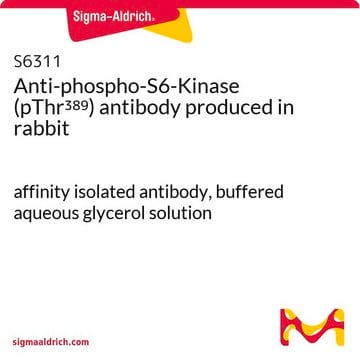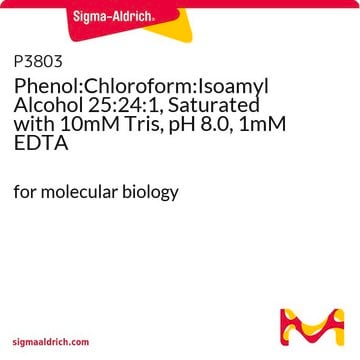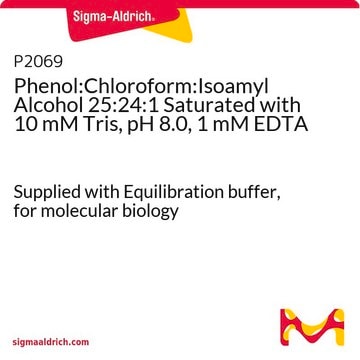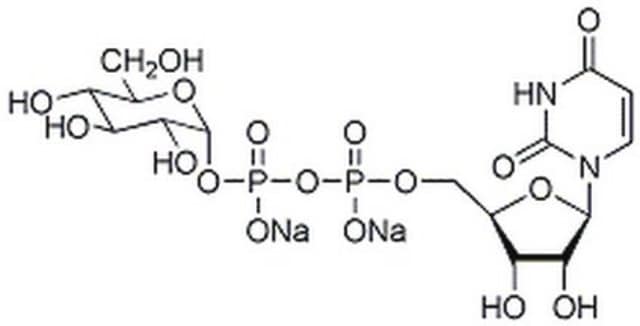S6436
Anti-phospho-S6-Kinase (pThr421/pSer424) antibody produced in rabbit
affinity isolated antibody, buffered aqueous glycerol solution
Synonyme(s) :
Anti-phospho-p70S6K (pThr421/pSer424)
About This Item
Produits recommandés
Source biologique
rabbit
Niveau de qualité
Conjugué
unconjugated
Forme d'anticorps
affinity isolated antibody
Type de produit anticorps
primary antibodies
Clone
polyclonal
Forme
buffered aqueous glycerol solution
Espèces réactives
mouse, rat, human
Technique(s)
immunoprecipitation (IP): 1:250
western blot (chemiluminescent): 1:1,000
Numéro d'accès UniProt
Conditions d'expédition
wet ice
Température de stockage
−20°C
Informations sur le gène
human ... RPS6KB1(6198)
mouse ... Rps6kb1(72508)
rat ... Rps6kb1(83840)
Description générale
Anti-phospho-S6-kinase (p70S6K) (phosphothreonine 421/phosphoserine424) detects p70 S6 kinase and p85 S6 kinase only when activated by phosphorylation at Thr421/Ser424 and does not cross-react with other phosphoylated protein kinases.
Spécificité
Immunogène
Application
Forme physique
Clause de non-responsabilité
Vous ne trouvez pas le bon produit ?
Essayez notre Outil de sélection de produits.
Code de la classe de stockage
10 - Combustible liquids
Classe de danger pour l'eau (WGK)
WGK 2
Point d'éclair (°F)
Not applicable
Point d'éclair (°C)
Not applicable
Faites votre choix parmi les versions les plus récentes :
Déjà en possession de ce produit ?
Retrouvez la documentation relative aux produits que vous avez récemment achetés dans la Bibliothèque de documents.
Notre équipe de scientifiques dispose d'une expérience dans tous les secteurs de la recherche, notamment en sciences de la vie, science des matériaux, synthèse chimique, chromatographie, analyse et dans de nombreux autres domaines..
Contacter notre Service technique







